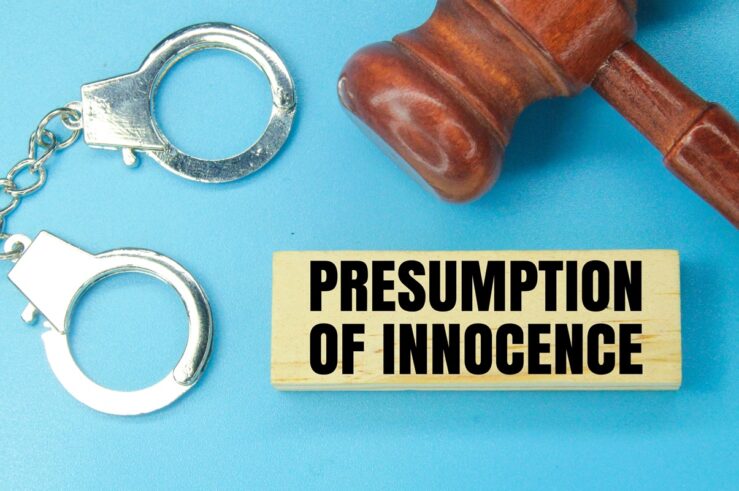Systemic Risk and Copyright in the EU AI Act
The European Parliament’s approval last week of the AI Act marked a significant milestone in the regulation of artificial intelligence. While the law’s final text is less alarming than what was initially proposed, it nonetheless still includes some ambiguities that could be exploited by regulators in ways that would hinder innovation in the EU. Among ... Systemic Risk and Copyright in the EU AI Act
Section 214: Title II’s Trojan Horse
The Federal Communications Commission (FCC) has proposed classifying broadband internet-access service as a common carrier “telecommunications service” under Title II of the Communications Act. One major consequence of this reclassification would be subjecting broadband providers to Section 214 regulations that govern the provision, acquisition, and discontinuation of communication “lines.” In the Trojan War, the Greeks ... Section 214: Title II’s Trojan Horse
Mi Mercado Es Su Mercado: The Flawed Competition Analysis of Mexico’s COFECE
Mexico’s Federal Economic Competition Commission (COFECE, after its Spanish acronym) has published the preliminary report it prepared following its investigation of competition in the retail electronic-commerce market (e.g., Amazon). The report finds that: there are elements to preliminarily determine that there are no conditions of effective competition in the Relevant Market of Sellers and in ... Mi Mercado Es Su Mercado: The Flawed Competition Analysis of Mexico’s COFECE
The Broken Promises of Europe’s Digital Regulation
If you live in Europe, you may have noticed issues with some familiar online services. From consent forms to reduced functionality and new fees, there is a sense that platforms like Amazon, Google, Meta, and Apple are changing the way they do business. Many of these changes are the result of a new European regulation ... The Broken Promises of Europe’s Digital Regulation
A Closer Look at Spotify’s Claims About Apple’s App-Store Practices
Following Monday’s announcement by the European Commission that it was handing down a €1.8 billion fine against Apple, Spotify—the Swedish music-streaming service that a decade ago lodged the initial private complaint that spawned the Commission’s investigation—published a short explainer on its website titled “Fast Five Facts: Facts that Show Apple Doesn’t Play Fair.” The gist ... A Closer Look at Spotify’s Claims About Apple’s App-Store Practices
Blackout Rebates: Tipping the Scales at the FCC
Cable and satellite programming blackouts often generate significant headlines. While the share of the population affected by blackouts may be small—bordering on minuscule—most consumers don’t like the idea of programming blackouts and balk at the idea of paying for TV programming they can’t access. Enter the Federal Communications Commission (FCC) with a bold proposal to ... Blackout Rebates: Tipping the Scales at the FCC
The Law & Economics of the Capital One-Discover Merger
Capital One Financial announced plans late last month to acquire Discover Financial Services in a $35.3 billion deal that would give Capital One its own credit-card payment network, while simultaneously allowing the company to expand its deposit base, credit-card offerings, and rewards programs. Conversely, credit analysts like Matt Schulz of LendingTree note that “if Capital ... The Law & Economics of the Capital One-Discover Merger
The DMA’s Missing Presumption of Innocence
The EU’s Digital Markets Act (DMA) will come into effect March 7, forcing a handful of digital platforms to change their market conduct in some unprecedented ways. The law effectively judges them guilty (with a very limited, formalistic trial), and brands them “gatekeepers” based purely on size. It then sentences them to far-reaching, one-size-fits-all antitrust-style ... The DMA’s Missing Presumption of Innocence
The CFPB’s Misleading Slant on Competition in Credit-Card Markets
In yet another example of interagency cheerleading from the Federal Trade Commission (FTC), Chair Lina Khan recently touted the work of the Consumer Financial Protection Bureau (CFPB) on payments networks: https://twitter.com/linakhanFTC/status/1759962157133726060?s=20 Hmmm, does it? How so? And what ought one to do with that information? A caveat: I’ve spent many years on competition issues, but ... The CFPB’s Misleading Slant on Competition in Credit-Card Markets
Apple Fined at the 11th Hour Before the DMA Enters into Force
Just days before the EU’s Digital Markets Act (DMA) was set to enter into force, the European Commission hit Apple—one of the six designated “gatekeepers” to which the new law will apply—with a hefty €1.8 billion fine for the kinds of anti-steering provisions that will be banned by the DMA, which enters into force on ... Apple Fined at the 11th Hour Before the DMA Enters into Force
The Whole Wide World of Government
First, a bit of self-promotion: the International Center for Law & Economics (ICLE) hosted an excellent panel discussion Feb. 26 on the 2023 merger guidelines. I moderated, but the real attractions were the panelists: Maureen Ohlhausen, Noah Phillips, Bruce Kobayashi, Diana Moss, and Kristen Limarzi. The room was packed, as it should have been. Video ... The Whole Wide World of Government
Will the FTC Scupper the Kroger/Albersons Merger?
The press is abuzz with news about the Federal Trade Commission’s (FTC) Feb. 26 announcement that it would challenge the proposed Kroger/Albertsons mega-supermarket merger, which had been in the works since the fall of 2022. If the FTC succeeds in obtaining a temporary restraining order and preliminary injunction in Oregon federal district court (a big ... Will the FTC Scupper the Kroger/Albersons Merger?
















